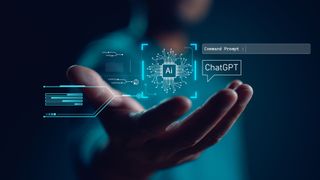OpenAI CEO Sam Altman has declared that humanity is on the brink of a superintelligence revolution, and that “In the next couple of decades, we will be able to do things that would have seemed like magic to our grandparents.”
In a blog post titled The Intelligence Age, the AI pioneer, whose company created ChatGPT, is bullish on the power of artificial intelligence to help us accomplish things that were unimaginable just a few decades ago.
He wrote that “we’ll soon be able to work with AI that helps us accomplish much more than we ever could without AI; eventually we can each have a personal AI team, full of virtual experts in different areas, working together to create almost anything we can imagine. Our children will have virtual tutors who can provide personalized instruction in any subject, in any language, and at whatever pace they need. We can imagine similar ideas for better healthcare, the ability to create any kind of software someone can imagine, and much more.”
Altman’s post reaffirms his optimism about an exciting future for artificial intelligence, in particular his comments on the future of superintelligence, and when we might have access to it. “It is possible that we will have superintelligence in a few thousand days (!); it may take longer, but I’m confident we’ll get there,” he wrote.
What exactly is superintelligence?

Superintelligence, more commonly referred to as artificial general intelligence (AGI), would see AI surpass the brightest human minds, potentially enhancing humanity and becoming a tool to take development to the next level. As yet, AGI doesn’t supersede human intelligence, but it seems to be a matter of when, rather than if.
Altman’s vision that AI will help humanity achieve whatever we can imagine is not the only attention-grabbing take from this blog post. He’s hesitant about some elements of AI, highlighting that “It will not be an entirely positive story, but the upside is so tremendous that we owe it to ourselves, and the future, to figure out how to navigate the risks in front of us.”
He acknowledges that there are likely to be job losses along the way, writing that “we expect that this technology can cause a significant change in labor markets (good and bad) in the coming years, but most jobs will change more slowly than most people think, and I have no fear that we’ll run out of things to do (even if they don’t look like ‘real jobs’ to us today).”
Altman’s vision of the future will be seen as exciting to some and terrifying to others, but one thing is clear: AI and superintelligence are set to transform the way we live forever, and we may be too far down the road to change that, even if we wanted to.